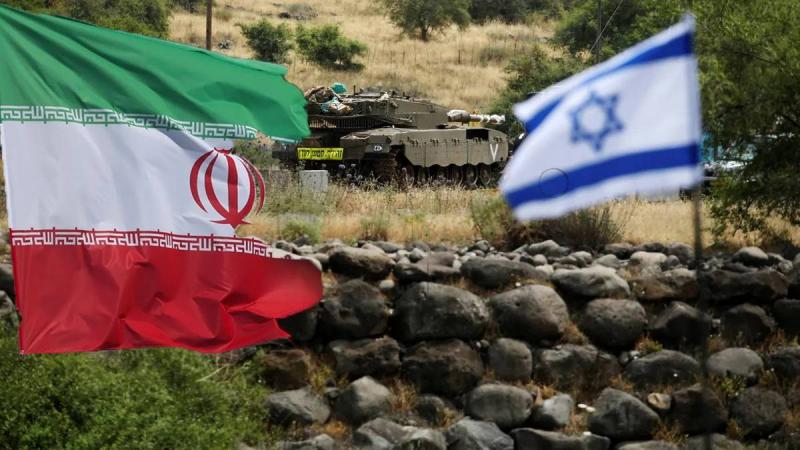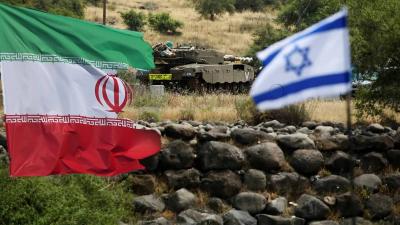Three senior Israeli security sources and one Western security source told Reuters that Israel does not want a direct confrontation with Tehran. Despite the fact that the Iranians have been training and arming Hamas, there is no indication that the Islamic Republic was forewarned about the October 7 attack.
On October 15, Iran issued a strong public warning to its arch-enemy Israel when its foreign minister said: "Stop your attack on Gaza, or we will have to take action." Only hours later, the Islamic Republic's mission to the United Nations toned down its rhetoric, reassuring the world that its armed forces would not intervene in the conflict unless Israel attacked Iranian interests or citizens. According to nine Iranian officials familiar with the thinking within the ruling religious establishment, Iran, which has long supported the Islamic Resistance Movement (Hamas) governing the Gaza Strip, finds itself in a dilemma as it attempts to manage the escalating crisis. The officials, who requested anonymity due to the sensitive discussions in Tehran, explained that remaining a bystander during any large-scale Israeli ground invasion of Gaza would severely undermine Iran's strategy of expanding and strengthening its influence regionally over the past four decades. However, any major attack against Israel supported by the United States could also inflict severe losses on Iran and provoke public anger against the ruling religious establishment in a country already grappling with an economic crisis, the officials said as they assessed various military, diplomatic, and domestic priorities that the establishment is trying to balance.
Three security officials reported that there is currently a consensus among senior Iranian decision-makers to bless limited strikes by Hezbollah across the border against Israeli military targets, over 200 kilometers away from Gaza, as well as narrow-scale attacks conducted by other allied groups in the region against American targets, while avoiding any significant escalation that could drag Iran itself into the conflict. Iranian state media quoted Vahid Jalalzadeh, head of the National Security Committee in Parliament, as saying on Wednesday, "We are in touch with our friends Hamas, Islamic Jihad, and Hezbollah... Their position is that they do not expect us to carry out military operations."
The Iranian Foreign Ministry did not respond to a request for comment on how the country is handling the crisis, and Israeli military authorities declined to comment. The situation appears to Iran as a tightrope walk. The sources clarified that losing a power base established by Iran in the Palestinian sector through Hamas and the Islamic Jihad over three decades would create a rift in Iran's plans that have built a network of armed militant groups across the Middle East, from Hezbollah in Lebanon to the Houthis in Yemen. Three of the sources stated that Iranian inaction on the ground could be seen as a sign of weakness by those allied groups, which have represented Tehran's main arm of influence in the region for decades. They added that this could also impact Iran's standing, which has long championed the Palestinian cause and rejected acknowledging Israel, considering it a vile occupier.
Avi Melamed, a former Israeli intelligence officer and negotiator during the first and second intifadas, said, "The Iranians are facing a dilemma about whether they will send Hezbollah into battle to try to save their arm in the Gaza Strip or perhaps abandon and forego this arm." He continued, "The Iranians at this point... are calculating the risks."
### "Survival is the Top Priority"
Iran's strategic goals face immediate military considerations, as Israel has been carrying out unprecedented air strikes on Gaza following the Hamas attack on October 7, which resulted in 1,400 deaths in Israel, leading to the deaths of at least 4,300 so far. It is widely believed that Israel, the major military power, has a nuclear arsenal, although it neither confirms nor denies this, and it enjoys support from the United States, which has deployed aircraft carriers and fighter jets in the Eastern Mediterranean, partly to warn Iran.
A senior Iranian diplomat said, "For senior leaders in Iran, especially the Supreme Leader (Ayatollah Ali Khamenei), the top priority is the survival of the Islamic Republic." He added, "That is why the Iranian authorities use strong rhetoric against Israel since the beginning of the attack, but they refrain from direct military intervention, at least for now."
Since October 7, Hezbollah has exchanged fire with Israeli forces along the Israeli-Lebanese border in skirmishes resulting in the deaths of 14 fighters from the group. Two sources familiar with Hezbollah's thinking stated that this low level of violence aims to keep Israeli forces occupied without opening a new major front, with one describing this tactic as conducting "small wars." Hezbollah leader Hassan Nasrallah, who typically issues threats against Israel in his speeches, has not made any public comments since the outbreak of the crisis.
Three senior Israeli security sources and one Western security source told Reuters that Israel does not want a direct confrontation with Tehran, and although Iranians have trained and armed Hamas, there is no indication that the Islamic Republic was forewarned about the October 7 attack. The Iranian Supreme Leader Khamenei denied Iran's involvement in the attack but praised the damage it caused to Israel.
The Israeli and Western security sources said that Israel would not attack Iran unless it came under direct attack by Iranian forces from Iran, but they warned that the situation is volatile and that any attack on Israel that results in heavy losses from Hezbollah or Iranian proxies in Syria or Iraq could alter this equation. One Israeli source added that any miscalculation by Iran or any of the groups allied with it regarding the scale of any proxy attack would be sufficient to change Israel's approach.
### "No American Forces on the Ground"
American officials clarified that their goal is to prevent the escalation of the conflict and to deter others from attacking American interests while keeping options available for Washington. On his way back from a visit to Israel on Wednesday, President Joe Biden firmly denied an Israeli media report claiming that American aides indicated to Israel that if Hezbollah began a war, the U.S. military would join the Israeli military in fighting the Lebanese group. Biden told reporters during a refueling stop at Ramstein Air Base in Germany regarding the Israeli report, "That is not true... That was never authorized." National Security Council spokesman John Kirby reiterated that Washington wants to contain the conflict. Kirby told reporters during the refueling stop that "there is no intention to deploy American forces on the ground to fight."
John Alterman, a former U.S. State Department official who now heads the Middle East program at the Center for Strategic and International Studies in Washington, stated that Iranian leaders will feel pressure to show tangible support for Hamas rather than just issuing rhetorical statements, but he warned of the potential for events to spiral out of control. He added, "Once you enter this environment, things happen, and there are consequences that no one wanted... Everyone is on edge."
The crisis has also heightened uncertainty in financial markets in the U.S. and abroad, boosting demand for "safe haven" assets such as gold, U.S. government bonds, and the Swiss franc. The market reaction remains subdued so far, but some investors warn that this could change drastically if the Gaza war escalates into a broader conflict in the region.
### "Neither Gaza nor Lebanon"
The reconciliation agreement mediated by China between Iran and Saudi Arabia has added complexity for leaders in Tehran who want to avoid jeopardizing this "fragile progress," according to a senior official close to Iranian decision-makers. At the same time, the Iranian people themselves could play a role in the unfolding events across the region.
Two officials in separate statements noted that Iranian rulers could not afford the repercussions of direct intervention in the conflict while struggling to appease and restrain growing opposition at home due to economic problems and social restrictions. The country has seen unrest for several months following the death of a young Iranian woman while in the custody of the morality police last year and due to the ongoing state crackdown on dissent. Economic problems, mainly stemming from U.S. sanctions and mismanagement, have led a significant number of Iranians to criticize the decades-long policy of sending money to Tehran's proxies to expand the Islamic Republic's influence in the Middle East.
For years, the slogan "Neither Gaza nor Lebanon... I sacrifice my life for Iran" has been a popular slogan in anti-government protests in Iran, highlighting the people's frustration with the ruling religious establishment's approach to resource allocation in the country. A senior former Iranian official stated, "Iran's complex position underscores the delicate balance it must maintain between regional interests and domestic stability."




